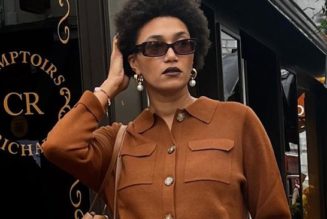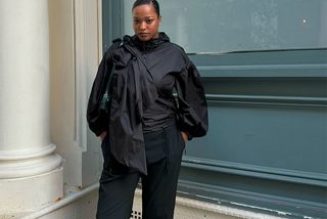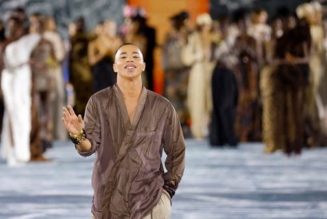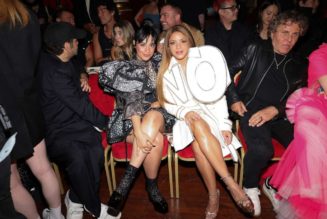EXCLUSIVE: Luxury labels are “naturally evolving” toward producing and making their own indie feature films, says Charles Finch, founder and chief executive of Finch and Partners, the consulting firm that has been the prime mover in enabling “a synergy of content” between the entertainment sector and the crème de la crème of brands.
For 25 years, Finch tells Deadline, “we have either represented studios in helping to promote their programming or we have brought enormous luxury deals to artists, and we continue to do those deals. …But, of course, what we hope is that sooner or later one of these super-brands will actually commit to making feature film programming.”
He adds, ”Not only are they dressing them, but they’re supporting their causes, and I’m trying to push luxury groups into stepping one step closer” to go beyond, for instance, the short films Prada’s creative director Miuccia Prada has championed at the label.
A variety of brands have worked with top directors to shoot content for commercials and advertisements. Finch says he remembers the three-minute No 5 the Film short Baz Luhrmann shot for Chanel nearly two decades ago. “That was a game-changer. The features are next,” says Finch.
“That’s the future of it, and that’s what they’re naturally evolving towards,” Finch believes. And some of the brands they work with — Chanel, Dior, Hermes, Gucci and Zegna — are inching in that direction, though for now he has no sense of a timeline for when luxury houses will start producing their own features. “The conversations are happening, though, with our encouragement.”
Claire Ingle-Finch, the group’s managing partner, notes that the labels want to be at the intersection of “investing and supportive of emerging filmmaker talent,” and “because we are at the intersection of luxury brands and entertainment, we are helping to make this happen.”

The two Finch and Partners executives say that the “public face” of what they do are the famous pre-BAFTA and pre-Oscar parties they co-host with Chanel in London and Beverly Hills and the annual Filmmakers Dinner held at the Hotel du Cap’s Eden Roc during the Cannes Film Festival.
Indeed, in between speaking with Deadline, their office is a hive of activity as they prepare for Saturday night’s swanky Chanel shindig at exclusive private club 5 Hereford Street in Mayfair.
“But there are 360-odd other days of the year,” argues Ingle-Finch, where they’re involved in a wide range of activities involving brands, studios and artists that combine to further interest in the art of cinema.
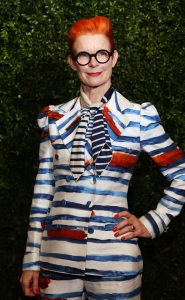
One example is the two-day Power of Film symposium on March 1 and 2 hosted by Finch’s magazine A Rabbit’s Foot in association with Armani. It’s a series of “conversations and confessions,” says Finch, on film, art and culture taking place at the Royal Institution in central London.
Confirmed speakers include BAFTA- and Palme d’Or-winning filmmaker Ken Loach (I, Daniel Blake; The Wind that Shakes the Barley) in conversation with critic Jason Solomons, and Asif Kapadia (Diego Maradona, Amy) talking with choreographic artist Akram Khan. Other participants include actor Matthew Modine (Stranger Things, Full Metal Jacket); documentarian Nick Broomfield (Kurt & Courtney, Battle for Haditha); celebrated costume designer Sandy Powell (Living, The Favourite, Far From Heaven), who’ll be honored Sunday with a BAFTA Fellowship; screenwriter, playwright and director Sir Christopher Hampton (The Father, Atonement); and filmmaker Edgar Wright (Shaun of the Dead, Baby Driver).
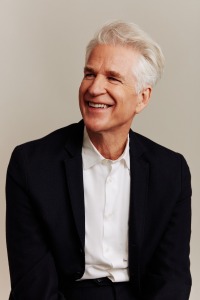

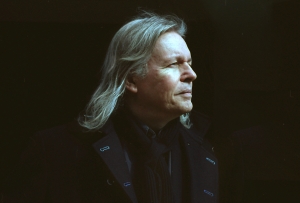

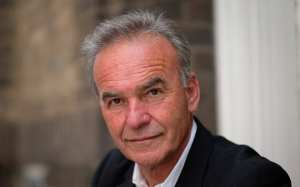
Importantly, says Finch, the Power of Film events are open to the public, and he insists it’s vital that the public be involved “because they’re the people who watch films in theaters, and that experience has to be kept going.” He adds that the Power of Film conference will culminate with a special screening of Nicholas Ray’s 1955 classic Rebel Without a Cause.
“Focusing on filmmakers is at the heart of everything we do,” Finch says.
Then Finch, Ingle-Finch and the Chanel team travel to the West Coast for the pre-Oscar soirée at the Polo Lounge. ”That’s also a unique gathering because you have both filmmakers, movie stars and also the financiers of these movies,” he says. “It’s a real celebration of world cinema in many ways as well.”
To that end, it’s all about bringing films like Edward Berger’s Netflix movie All Quiet on the Western Front, Ruben Östlund’s Triangle of Sadness and Park Chan-wook’s Decision to Leave “to as many great filmmakers as possible” and to “shine a light on them,” Ingle-Finch says.
They’ve also encouraged streamers to show selected films in theaters ahead of release on their platforms. ”The theatrical window gives great gravitas and makes something very tangible to the public,” Finch tells us.
Finch says that he and his colleagues are in constant conversation with the likes of Netflix, Warner Bros, A24, Mubi, Lionsgate and others about how premieres — “which in itself was an art form” — are managed.
“They became a sort of a necessary obligation, and an expensive necessary obligation to studios instead of a real tool where they could really promote an evening with a movie, and with stars,” he says, adding that galas should be a real “celebration of the craft of cinema.”
And that’s where the luxury brands are also important because they sell glamour. For starters, he thinks that stars could smarten up.
”When Kevin Costner or Denzel Washington are at the Oscars, on that stage presenting or receiving an award, in their tuxedos, speaking eloquently and powerfully with enormous convictions, how they look pulls people in,” he says.
Finch says that “grunge and vulgarity“ should not be part of a movie star’s look.
He adds that “vulgarity” shouldn’t be welcomed at the BAFTAs and Oscars either. He didn’t need to mention the name Will Smith.
Also, he whispered loudly, “less is more” and “to my mind the Oscars and the BAFTAs should be much, much shorter and, frankly, more honed to what the celebration is, of the craft.”
Finch observes that “no other firm has not only represented the pictures and promoted them but also celebrated the directors at such a high level and also made incredible endorsement deals and created the synergy of content between the entertainment sector and the luxury brands.”
And, he claims, “We were there first, and I think that’s generally known.”
That “synergy” emerged from “the idea of making the deal by the side of the pool or at the bar because you don’t usually make it in the the office. The encounter was a creative encounter,” says Finch, and those encounters have blossomed into a business that spans continents.
“And it’s always about working at the highest level possible with the best filmmakers, the best brands, the best cultural institutions and making sure that those relationships are fostered in a very proper way,” he says.

